Iwariwa the cayman refuses to share the fire that he uses to cook his food, until the animals of the Venezuelan rain forest come up with an ingenious scheme to trick him, in a traditional myth from the Yanomami people of South America.
Americas
Materials from the Americas
Arrorró, Mi Niño: Latino Lullabies and Gentle Games
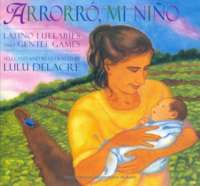
A bilingual recording of the selections in Arrorró, Mi niño, the award-winning collection of traditional Latino baby games and lullabies from fourteen Spanish-speaking countries.
Una Bruja En La Sopa (Primeros Lectores)
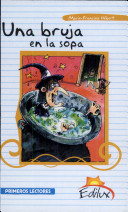 Un gato negro, con ojos que brillan en la oscuridad. Una señora vieja con nariz jorobada, la barbilla hendida y un gran sombrero puntiagudo. Fea a morir, Como una bruja. Una casa muy extraña, perdida al fondo de una calle desierta. Una olla tan grande, que es posible echar dentro a una persona.Todos los elementos que se requieren para que Meli Melo viva otra de sus fascinantes aventuras.
Un gato negro, con ojos que brillan en la oscuridad. Una señora vieja con nariz jorobada, la barbilla hendida y un gran sombrero puntiagudo. Fea a morir, Como una bruja. Una casa muy extraña, perdida al fondo de una calle desierta. Una olla tan grande, que es posible echar dentro a una persona.Todos los elementos que se requieren para que Meli Melo viva otra de sus fascinantes aventuras.
Marisol and the Yellow Messenger
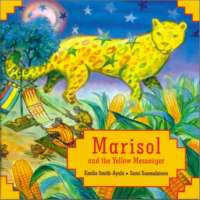
Marisol learns about identity, loss, and the continuation of love and hope after her father is killed and her family must move north from Latin America, but through dreams she discovers her father’s presence, but in a different way than before.
Light: Stories Of A Small Kindness
Heat
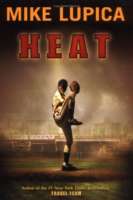
Michael Arroyo has a dream of pitching in the Little League World Series, and a pitching arm that throws serious heat. But that firepower is nothing compared to the heat Michael faces in his day-to-day life. Newly orphaned after his father led the family’s escape from Cuba, Michael has no one to watch out for him except his older brother Carlos, who is only 17, and if Social Services hears of the boys situation, they will be separated in the foster care system-or even worse, sent back to Cuba. So the boys their best to carry on alone, dodging bills and anyone who asks to many questions. Until, that is, someone questions how a 12-year-old boy could possibly throw with as much power as Michael Arroyo throws and Michael has no way to prove his age, no birth certificate, and no parent to fight for his cause. Suddenly Michael’s secret world is blown wide open-and he discovers that family can come from the most unexpected sources. A baseball and coming-of-age story worth cheering for, culminating in a dream come true for any boy: Michaelm poor orphan of the Bronx, NY, steps onto the most hallowed of spaces-the Yankee stadium pitching mound.
Babucha Mia, Para Siempre: You’re Mind Forever Babucha (Primeros Lectores Series) (Spanish Edition)
Babouche is dead. Carl is inconsolable. Her boyfriend wants to give him his own dog, but it is not a solution. Carl wonders about death.
A Small Nativity
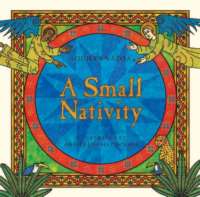
Well known for the charm, humor, and beauty of his writing, Aquiles Nazoa was one of Venezuela\’s most famous poets. Here he delightfully retells the Christmas story, while young Venezuelan artist and designer Ana Palmero Cáceres provides enriching, marvelous paintings laden with symbolism and pathos. Presented as a series of altar pieces and richly decorated with gold leaf, Cáceres\’s paintings use symbols and animals native to the Americas as frames for the story of how simple, humble Mary and Joseph sought a place for the birth of their son.



